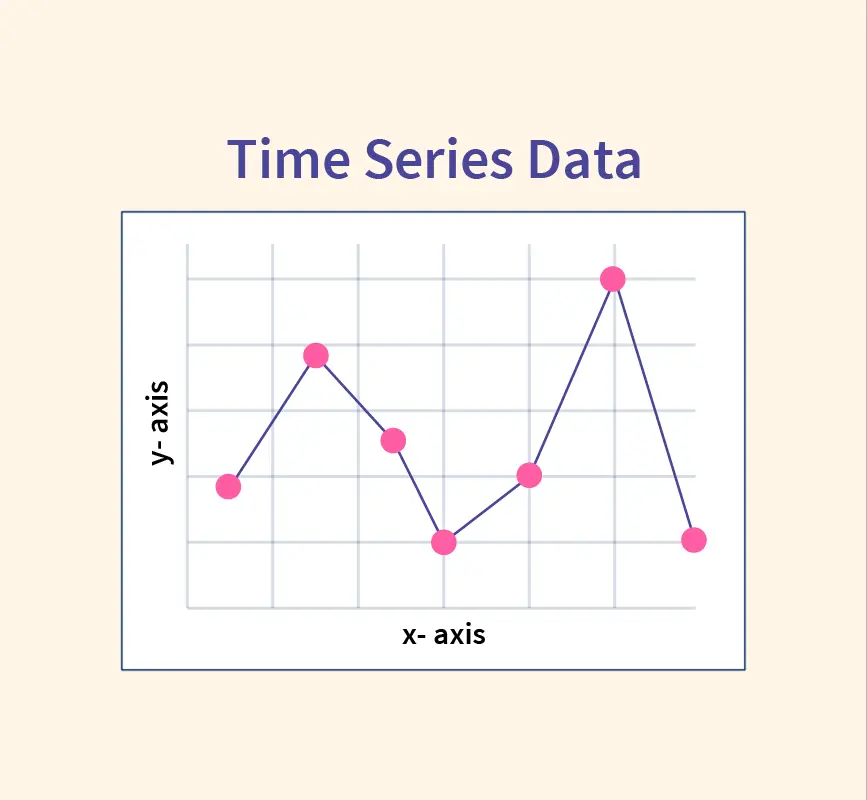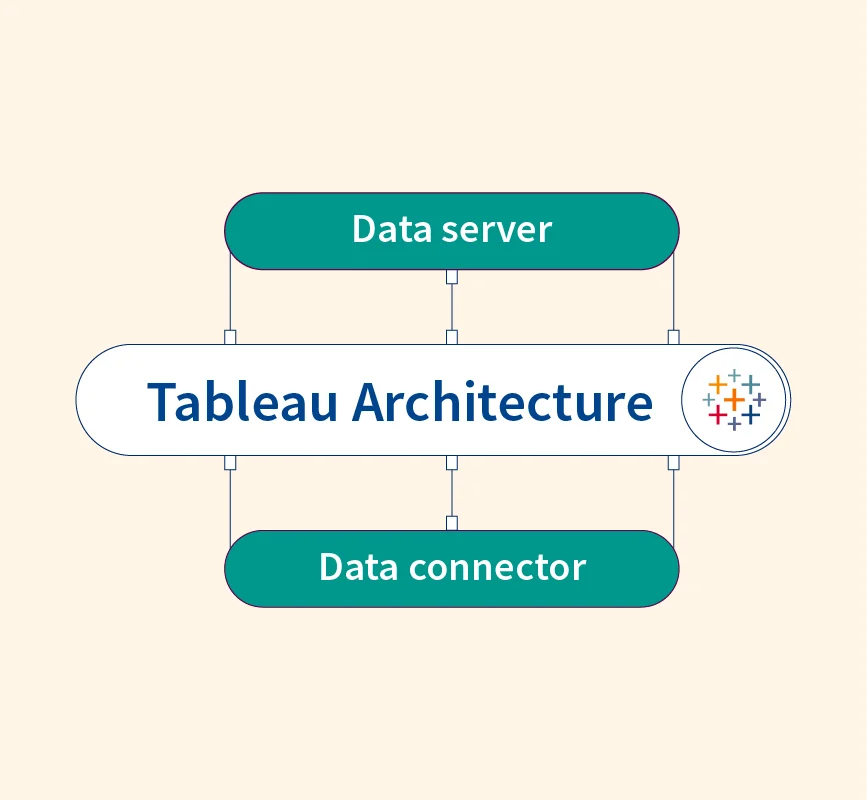Did you know that data scientists are among the most sought-after professionals in today’s job market? As businesses generate and rely on more data than ever before, the demand for data scientists has skyrocketed. But is it really hard to become a data scientist? The answer depends on your skills, dedication, and willingness to embrace continuous learning.
This article will explore the challenges and rewards of learning data science, helping you decide if this field is the right fit for you. Whether you’re interested in the technical aspects or the potential career benefits, understanding what it takes to succeed in data science is key.
What is Data Science?
Data Science is an interdisciplinary field that combines programming, statistics, and domain knowledge to extract meaningful insights from large and complex datasets. It involves using tools, algorithms, and models to analyze data, draw conclusions, and make predictions.
At its core, data science brings together multiple components, including:
- Data Collection and Processing: Gathering and cleaning raw data from various sources.
- Exploratory Data Analysis: Identifying patterns, trends, and correlations in the data.
- Machine Learning: Building predictive models to forecast outcomes or behaviors.
- Data Visualization: Presenting data insights in an easy-to-understand format.
This combination of skills allows data scientists to solve real-world problems across industries, ranging from finance and healthcare to marketing and technology.
Is It Worth It to Learn Data Science?
Yes, learning data science can be incredibly rewarding, both professionally and financially. Here are a few reasons why it’s worth considering:
1. High Earning Potential
- Data scientists are among the highest-paid professionals in the tech industry. According to recent reports, the average salary for a data scientist in the U.S. is around $120,000 per year, with senior roles commanding even higher compensation.
2. Job Satisfaction
- Many data scientists report high levels of job satisfaction due to the variety of work, intellectual challenge, and the opportunity to make data-driven decisions that impact real-world outcomes.
3. Wide Range of Applications
- Data science skills are applicable across virtually every industry. Whether it’s predictive modeling in healthcare, fraud detection in finance, or recommendation systems in e-commerce, the demand for data scientists spans multiple sectors.
4. Growing Demand
- The need for skilled data scientists continues to grow. According to LinkedIn, data science jobs are among the fastest-growing career paths, and the demand for data professionals is expected to increase as more businesses become data-driven.
Given these benefits, data science can be a valuable and rewarding field for those willing to invest the time and effort in learning the necessary skills.
What Can You Do with Data Science?
One of the most exciting aspects of data science is its versatility. Data scientists can work in a variety of industries, applying their skills to solve a wide range of problems. Here are some examples of what you can do with data science:
1. Predictive Modeling in Healthcare
- Data scientists help predict patient outcomes, such as disease progression or hospital readmissions. For example, machine learning models can analyze patient data to predict the likelihood of developing certain conditions, allowing healthcare providers to intervene early.
2. Fraud Detection in Finance
- In the finance sector, data science plays a crucial role in detecting fraudulent transactions. By analyzing historical transaction data, machine learning algorithms can identify unusual patterns that signal potential fraud, helping banks and payment processors reduce losses.
3. Recommendation Systems in E-commerce
- Companies like Amazon and Netflix use data science to power their recommendation engines. By analyzing customer behavior, such as past purchases or viewing history, data scientists build models that suggest products or content tailored to individual preferences.
4. Sentiment Analysis in Marketing
- Data science helps marketers analyze social media conversations and customer feedback to gauge public sentiment. By using natural language processing (NLP) algorithms, companies can understand customer opinions about their products and adjust their marketing strategies accordingly.
These examples highlight how data science can impact industries such as healthcare, finance, retail, and marketing, making it one of the most versatile and in-demand skill sets in today’s job market.
What Are the Most Challenging Parts of Learning Data Science?
While data science offers many rewards, learning the necessary skills can be challenging. Below are some of the most difficult aspects of mastering data science:
1. High Technical Skill Requirements
- Data science requires proficiency in multiple programming languages like Python and R, as well as a deep understanding of mathematical concepts such as statistics, probability, and linear algebra. For many, mastering these technical skills can be a steep learning curve.
2. Domain Expertise
- It’s not enough to be skilled in programming and statistics; data scientists also need domain knowledge in the industry they are working in. For example, a data scientist in healthcare needs to understand medical terminology and industry-specific data. Developing expertise in both the technical and business sides of data science can be difficult.
3. Complexity of Real-World Data
- Unlike clean, structured data sets used in tutorials, real-world data is often messy, incomplete, and inconsistent. Learning how to clean, process, and handle complex data is a major challenge in data science, requiring significant time and patience.
4. Continuous Learning
- The field of data science is constantly evolving, with new tools, techniques, and algorithms emerging regularly. To stay competitive, data scientists must embrace continuous learning, which can be overwhelming for some.
5. Competitive Job Market
- As data science becomes more popular, the job market is becoming increasingly competitive. While there are plenty of opportunities, standing out among other qualified candidates can be challenging, especially for newcomers to the field.
These challenges make data science a demanding field to enter, but with dedication, the rewards can outweigh the difficulties.
How Does Learning Data Science Compare to Other Fields?
When compared to other technical fields, data science stands out for its interdisciplinary nature, blending programming, statistics, and domain expertise. Here’s how it compares to some related fields:
1. Data Science vs. Software Engineering
- Difficulty: Both fields require programming skills, but software engineering often focuses more on software development, design patterns, and algorithms, while data science incorporates statistical analysis and machine learning.
- Learning Curve: Software engineering has a steeper learning curve in areas like system architecture and algorithms, whereas data science requires mastery of both programming and statistical modeling.
- Career Prospects: Both fields offer strong career opportunities, but data science roles often require more niche skills in data analysis and machine learning.
2. Data Science vs. Computer Science
- Difficulty: Computer science is broader, covering topics like operating systems, networks, and algorithms, while data science focuses specifically on working with data.
- Learning Curve: Computer science students may find learning data science easier, as they already have a foundation in programming and algorithms, but data science requires additional knowledge in statistics and data handling.
- Career Prospects: Computer science graduates have a wider range of opportunities, while data science careers are more specialized but in high demand.
3. Data Science vs. Business Analytics
- Difficulty: Business analytics is generally less technical, focusing on interpreting data to inform business decisions, whereas data science involves building and optimizing machine learning models.
- Learning Curve: Business analytics students may not need as much programming or mathematical expertise, making it easier to get started compared to data science.
- Career Prospects: Data science offers more opportunities in technical roles, while business analytics careers focus more on management and decision-making.
In summary, data science sits between software engineering and business analytics in terms of technical difficulty, combining aspects of both fields. It requires strong programming skills like software engineering, but with the added challenge of statistical analysis and machine learning.
Is Data Science a Difficult Major to Enter?
For many students, pursuing a degree in data science can be challenging but rewarding. Here’s what you can expect if you’re considering entering this field academically:
1. Academic Requirements
- A typical data science program involves a mix of subjects such as mathematics, statistics, computer science, and machine learning. To succeed, you’ll need a strong foundation in calculus, linear algebra, and programming languages like Python or R.
- Some programs may also require knowledge of database management (SQL), data visualization, and basic concepts in artificial intelligence (AI).
2. Self-Learning Options
- Data science is one of the few fields where you can enter the industry through self-study. Many professionals have developed their skills using online courses, bootcamps, and resources like Kaggle, Coursera, or edX. These platforms offer practical, hands-on experience that is highly valued by employers.
- However, self-learning requires dedication and discipline, as you’ll need to cover a wide range of topics without the structure of a formal program.
3. Balancing Theory and Practice
- Data science majors often find it difficult to balance theoretical concepts with practical application. While the coursework may involve deep theoretical learning (e.g., understanding algorithms or statistical methods), the practical side of working with real-world data can be a significant challenge.
4. Internship Opportunities
- Data science students are often encouraged to take on internships during their studies. These internships provide hands-on experience with real datasets, tools, and industry practices, which are crucial for bridging the gap between academic knowledge and practical skills.
Overall, data science is a challenging major that demands a mix of mathematical, analytical, and technical skills. However, with the right preparation and determination, students can thrive and build a strong foundation for a successful career.
Why and How Is It Hard to Get Into Data Science?
Breaking into the field of data science can be challenging due to several factors, ranging from technical skill requirements to the complexity of real-world data. Here’s a look at why and how it’s difficult to enter this field:
1. High Technical Skill Requirements
- Why it’s hard: Data science requires a deep understanding of programming languages like Python or R, as well as advanced skills in statistics, probability, and machine learning algorithms. Mastering these areas can be overwhelming for beginners.
- How to overcome: Focus on building a strong foundation in programming and mathematics through structured courses, and practice regularly on platforms like Kaggle to sharpen your skills.
2. Domain Expertise
- Why it’s hard: Data scientists must not only be technically skilled but also understand the domain they’re working in, whether it’s healthcare, finance, or marketing. Without this expertise, it can be difficult to provide meaningful insights.
- How to overcome: Start by specializing in one domain. Focus on learning the industry-specific challenges and data types, and work on projects that give you exposure to that field.
3. Complexity of Real-World Data
- Why it’s hard: Unlike clean datasets used in tutorials, real-world data is often messy, incomplete, or inconsistent. Dealing with these complexities takes experience and patience.
- How to overcome: Learn effective data cleaning and data wrangling techniques. Tools like pandas in Python can help, but experience with messy data is key to mastering this aspect.
4. Continuous Learning
- Why it’s hard: Data science is a rapidly evolving field, with new tools, algorithms, and techniques emerging constantly. Keeping up with these changes can be a full-time job.
- How to overcome: Dedicate time to continuous learning. Follow industry blogs, attend webinars, and participate in online courses to stay updated on the latest trends and technologies.
5. Competitive Job Market
- Why it’s hard: With data science becoming a popular career choice, the job market is growing more competitive. Candidates often face stiff competition, especially for entry-level roles.
- How to overcome: Build a portfolio showcasing your projects, participate in data science competitions, and consider internships to gain practical experience. Networking within the industry can also provide opportunities that are not always advertised.
Despite these challenges, with dedication and the right approach, it’s possible to break into the field and thrive as a data scientist. The combination of technical skills, domain knowledge, and hands-on experience is key to overcoming these hurdles.
Skills Required to Be a Successful Data Scientist
To excel in the field of data science, you need a combination of technical, analytical, and soft skills. Here are the key skills that will help you succeed:
1. Technical Skills
- Programming: Proficiency in languages like Python and R is essential for data manipulation, analysis, and building machine learning models. Additionally, knowledge of SQL for querying databases is a must.
- Statistics & Probability: A solid understanding of statistical methods and probability theory is critical for hypothesis testing, model evaluation, and interpreting data.
- Machine Learning: Familiarity with algorithms such as linear regression, decision trees, and neural networks is necessary to build predictive models. Tools like Scikit-learn and TensorFlow are commonly used in this domain.
- Data Wrangling & Cleaning: Real-world data is often messy, so expertise in data cleaning techniques using libraries like pandas is crucial for preparing data for analysis.
2. Analytical Skills
- Data Interpretation: Beyond just analyzing data, you must be able to derive insights from it. This involves understanding data patterns, identifying trends, and making data-driven decisions.
- Critical Thinking: Data scientists need to approach problems methodically, breaking down complex issues into smaller, manageable tasks and applying logical reasoning to solve them.
- Problem-Solving: In data science, it’s important to frame problems correctly and determine the most effective way to approach them. Creativity in problem-solving can often lead to more innovative solutions.
3. Soft Skills
- Communication: Data scientists must be able to explain technical results to non-technical stakeholders. The ability to present findings in a clear and concise manner, using data visualizations or reports, is key.
- Collaboration: Data science projects often involve working with teams from different departments, such as engineering, marketing, or finance. Being able to collaborate effectively is essential.
- Adaptability: The field of data science is dynamic, with new tools and techniques emerging all the time. Being open to learning and adapting to new technologies is vital for long-term success.
4. Domain Knowledge
- To provide valuable insights, you must understand the context of the industry you’re working in. Whether it’s healthcare, finance, or retail, knowing the domain’s specific challenges and data types allows you to make more relevant and actionable recommendations.
These skills, combined with continuous learning and hands-on experience, are what differentiates a successful data scientist. Building a balance between technical expertise and soft skills will help you navigate both the technical and business sides of data science.
Conclusion
Learning data science is undoubtedly challenging, but the rewards can be well worth the effort. From mastering technical skills like programming and machine learning to tackling real-world data complexities, the journey requires dedication, continuous learning, and a passion for problem-solving. However, the high demand for skilled data scientists, the opportunity to work across various industries, and the potential for significant financial and professional growth make it a compelling career path.
If you’re excited by the idea of using data to drive decision-making and innovation, data science could be the perfect field for you. While it’s not easy, with the right mindset and perseverance, you can overcome the challenges and succeed in this dynamic and rewarding field.


